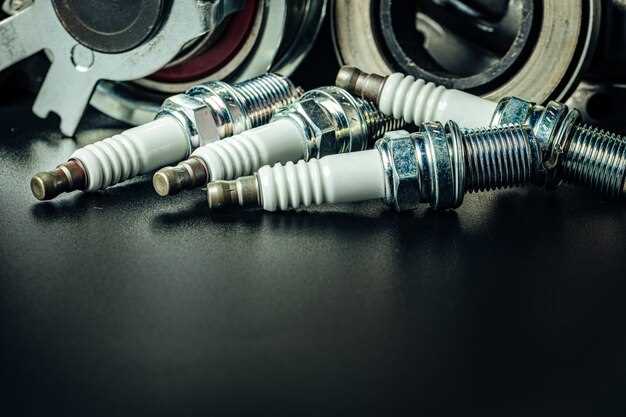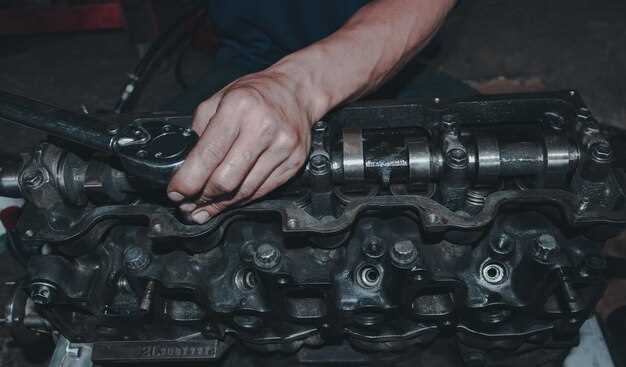

In the world of diesel engine tuning, fuel delivery plays a pivotal role in determining both performance and efficiency. At the heart of this system are fuel injectors, components responsible for delivering precise amounts of fuel directly into the engine’s combustion chamber. The efficiency and performance of a diesel engine are significantly influenced by how well these injectors function, making them a critical focus for tuners and mechanics alike.
Fuel injectors are not merely mechanical devices; they are advanced components that require a nuanced understanding to optimize their performance. The proper calibration of fuel injectors ensures that the fuel-air mixture is ideal for combustion, leading to improvements in power output and fuel economy. Moreover, misfiring or poorly performing injectors can lead to an array of issues, including increased emissions and engine knocking, underscoring their importance in the overall tuning process.
As diesel engines evolve, so too do the technologies and methodologies surrounding fuel delivery systems. With advancements in injector design, including features such as multi-hole nozzles and varying spray patterns, tuners can achieve enhanced performance metrics. Understanding the intricate details of how fuel injectors operate allows tuners to make informed decisions that can significantly improve the operational characteristics of diesel engines.
Optimizing Fuel Delivery for Enhanced Engine Performance
In diesel engine tuning, optimizing fuel delivery is crucial for improving overall performance and efficiency. The efficiency and accuracy of your injectors play a significant role in this process. Diesel fuel injectors must deliver precise amounts of fuel at the right time to ensure complete combustion. This not only enhances power output but also reduces emissions and fuel consumption.
One effective approach to optimizing fuel delivery is to select injectors that are specifically designed for your engine’s performance goals. High-flow or performance injectors can increase the volume of fuel delivered, allowing for more aggressive tuning without compromising engine reliability. However, it is essential to match these injectors with appropriate tuning parameters to prevent excessive smoke and inadequate combustion.
Another critical factor is the injection timing. Adjusting the timing of fuel delivery can significantly impact combustion efficiency. By moving the injection point to an optimal position, you can achieve better atomization of fuel, which leads to more efficient burning and increased torque. Advanced engine management systems often allow for fine-tuning of these parameters, giving tuners the flexibility to maximize performance.
Monitoring the fuel delivery system’s pressure is also vital. Consistent fuel pressure ensures that injectors operate correctly and deliver the intended amount of fuel. Upgrading to a high-performance fuel pump can help maintain optimal pressure, especially in high-demand situations such as towing or racing.
Lastly, regular maintenance of the fuel injectors is essential. Cleaning or replacing clogged or damaged injectors can restore optimal fuel delivery, reducing the risk of engine misfires and improving throttle response. By prioritizing these aspects of fuel delivery, diesel engine enthusiasts can enhance their engines’ performance significantly.
Identifying Common Injector Issues and Their Impact on Tuning

Fuel injectors play a crucial role in the performance of a diesel engine. Their primary function is to deliver the right amount of fuel at the right time, ensuring optimal combustion. However, several common issues can arise with fuel injectors that significantly affect engine tuning and overall performance.
One frequent problem is injector wear or clogging. Over time, deposits from fuel can accumulate within the injectors, leading to restricted flow. This affects the fuel atomization process, resulting in incomplete combustion. In such cases, the engine may experience poor throttle response, increased emissions, and reduced power output. Adjusting the tuning to compensate for these changes can lead to inefficiencies, as the fundamental issue remains unaddressed.
Another common issue is leakage within the injectors. Injectors that do not seal correctly can lead to fuel leaking back into the combustion chamber or into the engine’s oil system. This can cause an overly rich fuel mixture, leading to black smoke and increased carbon buildup. In the tuning process, a rich fuel mixture can necessitate leaner adjustments elsewhere, complicating the tuning strategy and potentially damaging engine components.
Electrical problems are also prevalent in fuel injectors. Poor connections or damaged wiring can lead to inconsistent injector firing. This inconsistency can disrupt the timing and amount of fuel injected, creating uneven power delivery and affecting engine responsiveness. Proper tuning requires precise injector performance; thus, diagnosing and resolving electrical issues is essential before making any adjustments.
Injector nozzle wear is another significant concern. As injectors age, their nozzle patterns can become distorted, leading to uneven fuel distribution. This results in poor combustion efficiency, which directly impacts performance metrics like fuel economy and power. Tuning efforts may fall short if the injectors are not providing a proper spray pattern, underscoring the need for regular inspection and potential replacement.
Finally, using incorrect fuel grades or additives can lead to accelerated injector wear and fouling. Fuel quality directly influences injector performance; therefore, integrating high-quality fuel into tuning considerations is vital. Engines tuned with performance in mind may require injectors that can handle higher pressures or different fuel types, necessitating careful selection and testing.
In summary, identifying and rectifying common injector issues is essential for achieving successful diesel engine tuning. Any misalignment in injector performance can lead to tuning challenges, reduced efficiency, and even engine damage. Regular maintenance and thorough diagnostics are key strategies for ensuring fuel injectors function optimally, contributing to enhanced engine performance.
Choosing the Right Injectors for Specific Diesel Engine Configurations

Selecting appropriate injectors for diesel engine tuning is crucial to optimize performance and achieve desired power delivery. Various configurations of diesel engines require different characteristics from injectors to function effectively and efficiently. Understanding these needs can lead to maximized performance and better fuel efficiency.
Fuel Delivery Rate: One of the primary specifications to consider when choosing injectors is the fuel delivery rate, expressed in cubic centimeters per minute (cc/min). For high-performance engines, a higher delivery rate is essential to meet the increased fuel demands. Conversely, standard configurations may only require injectors with a lower flow rate to maintain optimal performance without compromising fuel economy.
Injector Size: The size of the injectors should align with the engine’s horsepower goals and modifications. Larger injectors can deliver more fuel, which is beneficial for turbocharged or heavily modified engines. However, oversizing injectors on a stock engine can lead to decreased efficiency and poor fuel atomization, resulting in incomplete combustion.
Spray Pattern: The spray pattern emitted by injectors significantly affects combustion efficiency. Choosing injectors with the correct spray angle and droplet size is vital for ensuring that the air-fuel mixture is optimally delivered into the combustion chamber. Different engine designs may benefit from various spray characteristics, emphasizing the importance of matching the injector type to the specific engine configuration.
Fuel Type Compatibility: Diesel fuel injectors must be compatible with the type of diesel being used, whether standard diesel, biodiesel, or other blends. This compatibility affects injector longevity and performance. For instance, biodiesel can be more corrosive than regular diesel, necessitating the selection of injectors specifically designed to handle such fuels.
Electrical Specifications: Diesel injectors operate using either a solenoid or piezoelectric mechanism, each with distinct advantages. Solenoid injectors generally offer proven reliability, while piezo injectors provide faster response times for more precise fuel delivery, making them ideal for high-performance applications. Understanding the electrical requirements of the engine’s control system is imperative when selecting the right injectors.
In conclusion, choosing the right injectors involves a thorough understanding of engine modifications, performance goals, and fuel delivery needs. By considering these aspects, diesel enthusiasts can ensure they select injectors that enhance both performance and efficiency.






